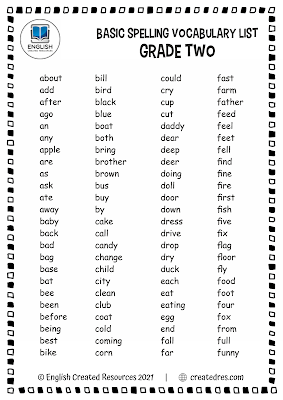Spelling is the ability to arrange letters in the correct order to make words that are communally understood. Spelling is considered one aspect of literacy (reading, writing and spelling).
Accurate spelling is important for a child to get through their schooling years, as spelling is required in order to pass assessments. Learning to spell helps a child to develop a strong connection between the letters and their sounds and learning high-frequency ‘sight words’ (i.e. words that can not easily be sounded out) will assist a child in both their reading and writing. The more thoroughly a child knows a word, the more likely it is that they will be able to recognise it in unfamiliar texts, spell it and use it appropriately in their own speech and writing.
Studies have identified that the importance of learning the alternative spellings for words that sound the same (e.g. rain, rein, reign) means that it is easier to quickly discern the correct meaning of that word.
Given the advent of technology there has been much debate about the relevance of teaching children to spell. One of the disadvantages of the spell check in technology is that a child must be able to start the word correctly and get most of the letters right. BUT what happens when the student spells the word ‘does’ as ‘dose’? The spell check on the computer will not recognise this as an incorrect word and consequently the student will continue to entrench the incorrect spelling habit and the reader of the document will become confused.
Spelling is not an easy process, but when children understand its clear structure and rules, unfamiliar words become more easily decodable (i.e. able to be sounded out). It is important that parents understand these rules in order to help their child outside of the school environment using consistent strategies. Only with understanding the spelling rule structure can children understand the many spelling rule ‘exceptions’.
Communication skills are essential for children to grow and interact successfully with the world. Communication usually begins with simple body language, gestures and vocalisations. As children progress to verbal communication, they naturally develop an early understanding of their native language.
Making the connection between verbal expression and written communication is much more complex, and requires a combination of observation and formal instruction. The foundational skills for successful written communication are learnt at this time, such as the ability to identify letters by sight, and build associations between written patterns and vocal expressions.
Research also bears out a strong relationship between spelling and writing: Writers who must think too hard about how to spell use up valuable cognitive resources needed for higher level aspects of composition. Even more than reading, writing is a mental juggling act that depends on automatic deployment of basic skills such as handwriting, spelling, grammar, and punctuation so that the writer can keep track of such concerns as topic, organization, word choice, and audience needs. Poor spellers may restrict what they write to words they can spell, with inevitable loss of verbal power, or they may lose track of their thoughts when they get stuck trying to spell a word.
English Created Resources prides itself on providing everything a learner needs to improve the level of English. Our website aims to provide all the required materials for English Language Teachers and Learners to help them master and improve their English, help their pupils master all the required skills.
Such materials are provided for free download to be available always for learners around the world. You can find English ESL worksheets for home learning, online practice, distance learning and English classes.
Through our website, teachers will be able to help their children improve both their written and spoken English. We provide materials related to all the different skills. Our reading Comprehension Worksheets help students to master reading and writing skills. There are also questions to measure pupils' understanding and help teachers evaluate their pupils easily.
Samples From the Book
Our Website helps you to give your child a boost using our free, printable worksheets. You will be able to help your child with his grammar skills with our printable worksheets that focus on using and punctual tion, Reading & writing.
Such Worksheets are a useful learning tool for kids who are trying to write or want to practice their language skills.




Comments
Post a Comment